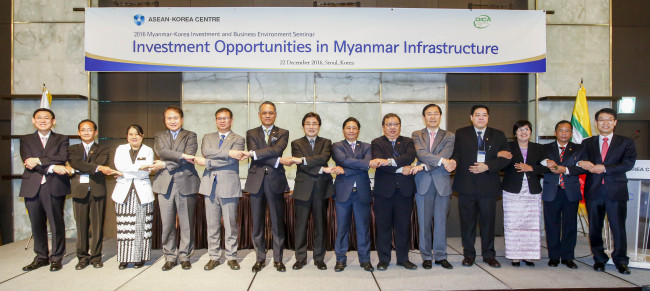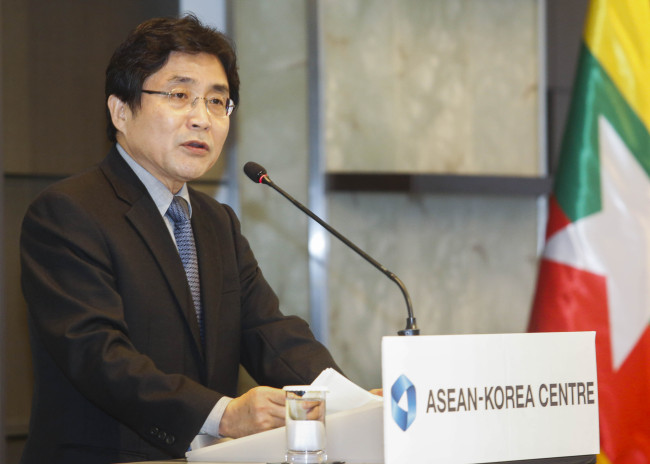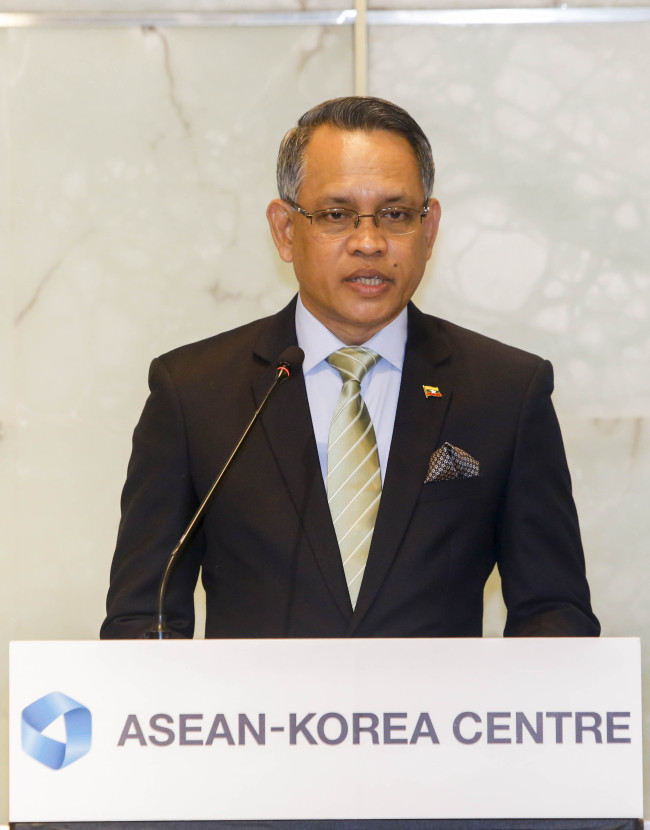Myanmar woos investments in infrastructure, transport and energy
By Korea HeraldPublished : Dec. 26, 2016 - 19:14
With the recent enactment of the investment law and lifting of sanctions, Myanmar has become friendlier to foreign investment, particularly in infrastructure, transport and energy, according to its state investment agency.
The Myanmar Investment Law was passed on Oct. 18 by combining the country’s foreign investment law and citizen investment law, providing income tax exemptions of up to seven consecutive years to outside investors, operating in underdeveloped regions.
When the law comes into effect in April next year, various regulations will be eased to the favor of investors, the Myanmar Directorate of Investment and Company Administration highlights.
To elicit Korean investment, a delegation of Burmese officials from the investment agency and ministries of construction, transport and communications, and energy and electricity came to Korea last week. They participated in the Investment and Business Environment Seminar on Myanmar in Seoul on Thursday, where they presented the country’s business environment and held one-on-one meetings with some 100 Korean company representatives.

“Great opportunities lie ahead in Myanmar,” Kim Young-sun, secretary-general of the ASEAN-Korea Center, said at the venue, noting its economy is estimated to grow over 8 percent annually over the next two years.
“Myanmar has a young and cheap workforce, long coastline and abundant farmland, ideally wedged between the populous markets of China, India and Southeast Asia.”
The conference was jointly organized by the ASEAN-Korea Center and the Myanmar Directorate of Investment and Company Administration. To witness firsthand Korea’s industrial capacity and technological expertise, the officials also visited Dongtan New City, south of Seoul, famous for its efficient transport system, and the waste-to-energy plant on Nanji Island in Seoul.
Accumulated Korean investment in the country topped $4.9 billion last year and is on the rise. The Burmese economy is expected to expand nearly 8.6 percent this year, according to the International Monetary Fund, with strong growths in energy, telecommunications construction and services sectors.
Foreign direct investments in oil and gas and electricity account for over 65 percent of total investment, and companies are plowing more and more capital into manufacturing, transport, telecommunications and mining.

“Since Myanmar opened up to foreign business and undertook a series of economic reforms in 2011, many in the international community have called the country a new economic frontier,” DICA Director General Aung Naing Oo said.
The Southeast Asian nation has implemented its long-term plan for foreign investment from 2014 to 2030, with an aim to attract $140 billion of FDI. Its midterm goal covering 2016 through 2020 is to achieve a comparative advantage in the ASEAN Economic Community and diversify domestic industries, he added.
The Burmese capital Naypyidaw has laid out its seven-point investment policies, which encompass dispute settlement, protection of investor rights and reliable financing. By 2030, Myanmar aims to upgrade its industrial and infrastructural capacities with a targeted $19 billion in FDI.
Stressing that political stability undergirds economic development, the bureaucrat said his country has prioritized national reconciliation following the end of decadeslong ethnic strife and civil war.
“Inclusive and sustainable growth is a fundamental pillar of our economic policy,” Aung Naing said. “National reconciliation and job creation are basic policy considerations for equitable nationwide development, including agricultural, livestock and manufacturing sectors.”
Highlighting the “dire need” for large-scale infrastructure development, the director general said investment is welcome in building electricity networks, roads, ports and an electronic government system.

The country’s construction market is estimated to grow to $5.6 billion by 2018, according to the ASEAN-Korea Center. The government is pursuing balanced territorial development, with plans to construct four industrial estates, seven satellite cities around Yangon, border cities for trade, seaside tourism attractions and natural resource-oriented cities.
To help alleviate the lot of low-income and impoverished families, the state plans to supply 1.8 million public homes by 2020 and 10 million units over the next 20 years.
“Myanmar has achieved very strong progress in information technology,” Aung Naing said, adding the mobile communications market has grown rapidly to serve over 43 million customers.
Acknowledging the country has one of Asia’s lowest rates of electricity access, at 30 percent of the population, he said Myanmar’s energy demand will surge, with a targeted 100 percent coverage and 24,000 megawatts of electricity to be generated by 2030.
The Myanmar Energy Master Plan, launched in January and covering 2015 through 2030, is geared to bolstering energy supply through the mixed use of sources, government cooperation and public-private partnership.
Highlighting the Master Plan on ASEAN Connectivity, adopted in 2010, he said Myanmar is home to the Asia Highway One that links India, Myanmar and Thailand.
“Vast opportunities exist for investing in infrastructure and logistics projects,” he emphasized. “Due to limited government resources, financing will have to come mostly from the private sector, particularly through public-private partnership. With the assistance of Asia Development Bank, we have established a framework for nurturing the private sector.”
By Joel Lee (joel@heraldcorp.com)
-
Articles by Korea Herald



















![[Today’s K-pop] Treasure to publish magazine for debut anniversary](http://res.heraldm.com/phpwas/restmb_idxmake.php?idx=642&simg=/content/image/2024/07/26/20240726050551_0.jpg&u=)